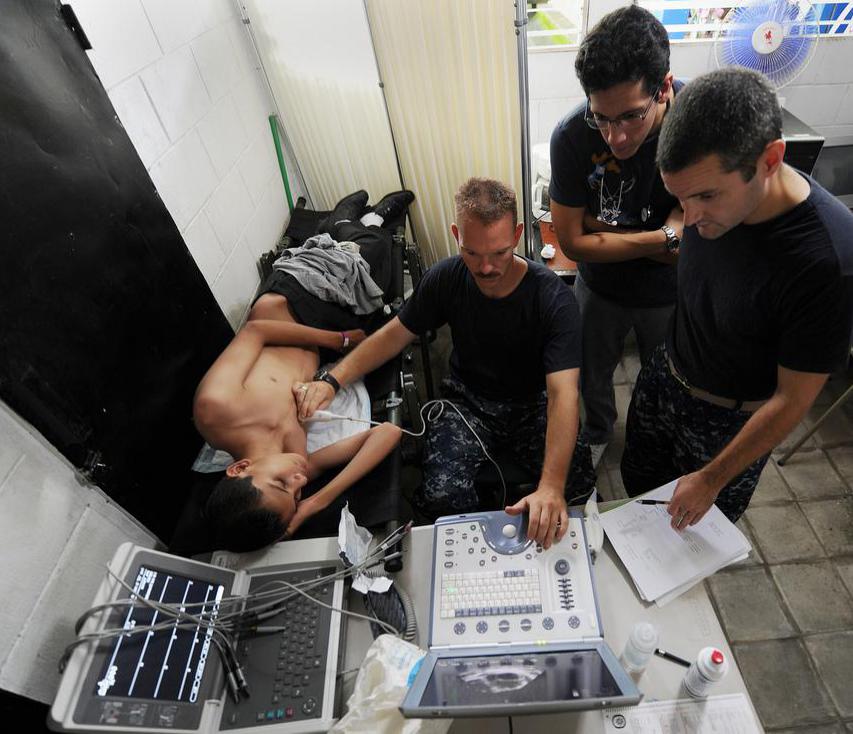At TheHealthBoard, we're committed to delivering accurate, trustworthy information. Our expert-authored content is rigorously fact-checked and sourced from credible authorities. Discover how we uphold the highest standards in providing you with reliable knowledge.
How Do I Interpret My Echocardiogram Results?
An echocardiogram is a diagnostic test that uses sound waves to create images of your heart. It is performed to determine you well your heart is pumping blood and whether any structural abnormalities are present. The images can be used to detect different types of problems in your heart muscle and valves. Your results should list several pieces of information, including your heart size, the pumping strength, and any abnormalities found during the test.
Your heart size plays a role in how well the organ pumps blood throughout your body, and helps determine your blood pressure. If your echocardiogram results indicate that you have an enlarged heart, it may indicate the presence of disease, such as coronary artery disease. Your heart may also be enlarged without a serious underlying cause, such as stress on your body or pregnancy.

In addition to the overall size of the heart, the echocardiogram can also measure the size of the heart's chambers, including their thickness and volume capacity. Over time, hypertension, or high blood pressure, can cause the walls of your heart to thicken, which reduces the heart's overall capacity. The echocardiogram results can tell your physician if this has occurred and to what extent. Noting the size of the chambers can also help diagnose certain types of heart disease and abnormalities. If abnormalities are found, your doctor may order additional testing each year to track the changes.

Echocardiogram results will provide information about the pumping strength of your heart. The test may look at specific measurements, such as how much blood is pumping out of a filled ventricle during each heartbeat, or the amount of blood pumping through the heart in one minute. The measurement is listed as an ejection fraction, or EF. Normal EF results range between 55 and 65 percent. Numbers below 45 percent indicate some decrease in the pumping strength, while numbers below 30 percent indicate a major decrease. Heart failure can occur when the heart is unable to pump enough blood to meet the needs of your body.

Heart defects may also be indicated on echocardiogram results. Typically, heart defects are present at birth, although some can appear later in life. The echocardiogram can help your doctor determine if you have structural abnormalities, such as abnormal connections between your heart and the major blood vessels. The test can also be used to monitor heart development and diagnose defects prior to birth.

Your doctor will explain your echocardiogram results in detail after the test. Abnormal results do not always indicate the presence of a disease or serious complication. If abnormalities are found, your doctor may order additional tests to determine a proper diagnosis.
AS FEATURED ON:
AS FEATURED ON:


















Discussion Comments
Who reads Echocardiograms?
It always helps to have a doctor that you feel comfortable talking to about all of your medical concerns. Then, when you have to have a test like an echo cardiogram, you will be able to put your mind at ease that you have an open line of communication with your doctor when it comes time to talk about the results. If may also help calm your nerves to discuss all of your concerns with your doctor prior to having such a test.
Post your comments